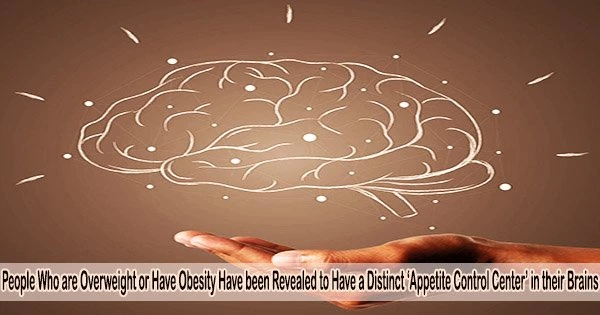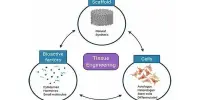Researchers from Cambridge University have demonstrated that the hypothalamus, a crucial part of the brain that regulates food, differs in the brains of obese and overweight individuals from those of persons who are of a healthy weight.
The findings, according to the researchers, provide additional support for the connection between brain shape and eating habits and body weight.
Current estimations suggest that over 1.9 billion people worldwide are either overweight or obese. In the UK, according to the Office for Health Improvement & Disparities, almost two-thirds of adults are overweight or living with obesity. This raises a person’s risk of contracting a variety of illnesses, such as type 2 diabetes, heart disease, stroke, cancer, and worsened mental health.
Our genetic make-up, the way our hormones are regulated, and the environment in which we live are just a few of the many variables that affect how much and what kinds of food we eat. It is not totally clear what happens in our brains to signal whether we are hungry or full, but studies have indicated that the hypothalamus, a little area of the brain the size of an almond, plays a crucial role.
Dr. Stephanie Brown from the Department of Psychiatry and Lucy Cavendish College, University of Cambridge, said, “Although we know the hypothalamus is important for determining how much we eat, we actually have very little direct information about this brain region in living humans. That’s because it is very small and hard to make out on traditional MRI brain scans.”
Our hope is that by taking this new approach to analyzing brain scans in large datasets, we can further extend this work into humans, ultimately relating these subtle structural brain findings to changes in appetite and eating and generating a more comprehensive understanding of obesity.
Professor Paul Fletcher
Animal studies provide the bulk of the evidence regarding the hypothalamus’ function in controlling hunger. These demonstrate the existence of intricately interconnected pathways in the hypothalamus, where several cell populations work in concert to signal when we are hungry or full.
To get around this, Dr. Brown and colleagues used an algorithm developed using machine learning to analyze MRI brain scans taken from 1,351 young adults across a range of BMI scores, looking for differences in the hypothalamus when comparing individuals who are underweight, healthy weight, overweight and living with obesity.
In a study published in Neuroimage: Clinical, the team found that the overall volume of the hypothalamus was significantly larger in the overweight and obese groups of young adults. In fact, the team found a significant relationship between volume of the hypothalamus and body-mass index (BMI).
These volume changes were most noticeable in the hypothalamic subregions that regulate appetite by releasing hormones that balance feelings of hunger and fullness.
Although the specific relevance of the finding is unknown, including whether the structural alterations are a result of or a cause of changes in body weight, one theory is that the change is related to inflammation. Previous animal research have demonstrated that a high-fat diet can result in hypothalamic inflammation, which then leads to insulin resistance and obesity.
In mice, just three days of a fat-rich diet is enough to cause this inflammation. Other research have demonstrated that chronic inflammation might increase the point at which animals feel full, meaning they need to consume more food than usual.
Dr. Brown, the study’s first author, added, “If what we see in mice is the case in people, then eating a high-fat diet could trigger inflammation of our appetite control center. Over time, this would change our ability to tell when we’ve eaten enough and to how our body processes blood sugar, leading us to put on weight.”
Inflammation may explain why the hypothalamus is larger in these individuals, the team say. One suggestion is that the body reacts to inflammation by increasing the size of the brain’s specialist immune cells, known as glia.
Professor Paul Fletcher, the study’s senior author, from the Department of Psychiatry and Clare College, Cambridge, said, “The last two decades have given us important insights about appetite control and how it may be altered in obesity. Metabolic researchers at Cambridge have played a leading role in this.”
“Our hope is that by taking this new approach to analyzing brain scans in large datasets, we can further extend this work into humans, ultimately relating these subtle structural brain findings to changes in appetite and eating and generating a more comprehensive understanding of obesity.”
According to the study, additional studies are required to determine if an increase in hypothalamus volume is caused by obesity or whether those who have larger hypothalami are naturally more likely to consume more. It’s also conceivable for these two variables to interact, creating a feedback loop.
















